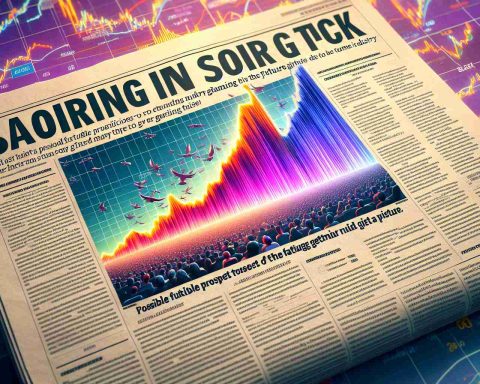In an age where technological innovation is accelerating at a breakneck pace, Elon Musk’s Tesla has yet again captured our imagination, but this time not on the road—rather, in the gaming realm. The term “valorisation” often refers to adding value, but what happens when Tesla adds its innovative touch to the world of gaming? This novel concept is sparking intense curiosity and conversation across tech communities.
Tesla’s valorisation strategy aims to utilize the advanced technology found in their electric vehicles to revolutionize virtual reality (VR) gaming experiences, potentially redefining how we perceive and interact with games. The seamless integration of Tesla’s AI-driven systems with immersive gaming platforms could bring unprecedented realism and responsiveness.
Imagine playing a racing game where the precise dynamics of Tesla’s cutting-edge vehicles are embedded within the virtual experience, allowing players to feel every turn and acceleration. Further, Tesla’s interest in neural networks and AI presents a tantalizing opportunity to merge real-world data with gaming environments, blurring the line between reality and play.
While still a speculative concept, the potential collaboration between Tesla and the gaming industry could unlock new dimensions of gameplay. This move may also pave the way for more tech companies to explore partnerships beyond traditional boundaries, fostering a future where virtual experiences are indistinguishable from real-life dynamics.
In the rapidly evolving tech landscape, Tesla’s valorisation in gaming hints at a future where gamers might no longer just play the game—they could drive it.
Can Tesla Transform VR Gaming with Realism and AI?
As Tesla enters the gaming arena with its revolutionary valorisation strategy, the world watches with bated breath. While the concept of leveraging Tesla’s technological prowess for virtual reality (VR) gaming is still in its speculative stage, the potential implications for the industry are vast and promising. Here’s a deeper look into how Tesla might reshape the gaming landscape and the challenges they could face.
Features and Innovations
Tesla’s approach to VR gaming promises immersive experiences powered by their sophisticated AI and neural networks. By integrating real-world vehicle dynamics into virtual environments, gamers could enjoy unparalleled realism. Imagine racing through a virtual city with the same precision and feel of driving a Tesla in reality. Additionally, Tesla’s AI capabilities might offer dynamic game adaptations that respond to player behavior in real-time, ensuring a personalized gaming experience.
Potential Use Cases
– Realistic Racing Simulations: Gamers could experience driving a Tesla in virtual worlds that mimic real-life driving conditions.
– Enhanced Gaming Analytics: Using Tesla’s AI, games could adapt dynamically based on in-game player performance, providing feedback and challenges tailored to individual players.
– Hybrid Reality Experiences: Merging augmented reality (AR) with VR, Tesla could create environments where digital and physical elements coexist seamlessly.
Market Analysis
With the VR market expanding rapidly, Tesla’s entry could stimulate further growth and innovation. The global VR market is projected to reach over $44 billion by 2024, and Tesla’s involvement could accelerate not only market adoption but also technological advancements. Collaborations with gaming giants might become more prevalent, further diversifying offerings in the VR space.
Challenges and Limitations
While Tesla’s gaming valorisation strategy is intriguing, it’s not without challenges:
– Technical Feasibility: Seamlessly integrating real-world vehicle dynamics into VR games requires cutting-edge technology and may face development hurdles.
– Market Competition: The gaming industry is highly competitive, with established companies investing heavily in VR. Tesla would need significant innovation to differentiate from existing products.
– User Accessibility: High-end VR gaming setups compatible with Tesla’s technology could be costly, limiting access to a broader audience.
Predictions and Trends
As technology continues to advance, it’s predicted that the line between virtual and real-world experiences will blur even further. Should Tesla succeed in their valorisation efforts, other tech companies might follow suit, leading to a more integrated digital and physical gaming sphere. This trend could redefine leisure and entertainment, presenting new possibilities in how we interact with digital ecosystems.
For more information on Tesla’s innovations and potential future projects, visit their official website at Tesla.
Tesla’s venture into gaming is still in its early stages, yet the possibilities it presents have already sparked substantial interest. The future may hold a world where virtual experiences rival real-world interactions, and Tesla seems poised to be at the forefront of this evolution.



















